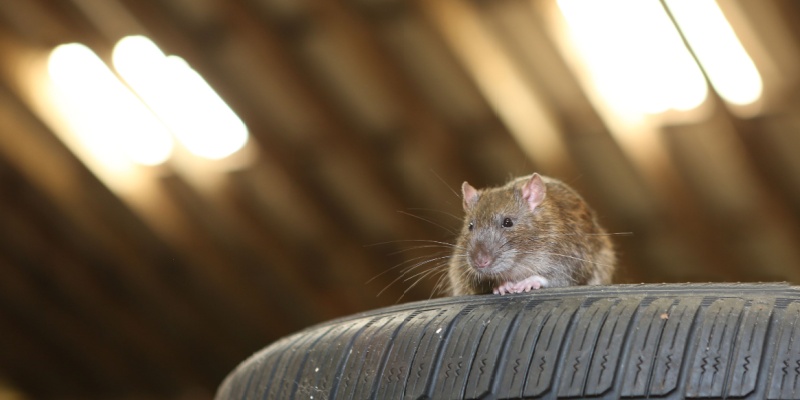Discovering a rat scurrying around in your garage can feel unsettling and leave you wondering what to do next. While it’s important to stay calm, addressing the situation promptly can help you prevent a small sighting from turning into a bigger problem. Rats can damage stored belongings, contaminate surfaces, and create unsanitary conditions if left unchecked. Fortunately, there are practical steps you can take right now to deal with this unexpected visitor.
First Things First: Assess the Situation
If you’ve just spotted a rat, it’s wise to take a moment and look around. Is the rat lingering, or did it quickly dash away? Are there any obvious signs of nesting, such as shredded paper, fabric, or chewed boxes? Look for droppings along the walls, in corners, or near stored items. The more you know about the extent of the problem, the better you can address it.
Clear the Clutter
Garages often have a lot of stored items, some of which might never get used. Rats love cluttered areas because it gives them plenty of places to hide and build nests. Start by organizing and decluttering. Move items away from walls and keep boxes elevated off the floor when possible. Use sturdy plastic containers with tight-fitting lids instead of cardboard boxes that rats can chew through. A cleaner, more open space makes it harder for rodents to find shelter and easier for you to spot any signs of their activity.
Check for Entry Points
Rats don’t just appear out of nowhere—they find their way in through gaps and cracks. Inspect the perimeter of your garage thoroughly. Look for any small holes along the foundation, gaps around garage doors, or places where utility lines enter the building. Even a small opening can be enough for a rat to squeeze through. Seal these gaps with materials like steel wool, caulk, or weather-stripping. Making it harder for rats to enter ensures you’re not just removing one rat but also preventing others from following.
Remove Food Sources
Rats are resourceful scavengers, always on the lookout for an easy meal. If your garage doubles as a place to store pet food, grass seed, or birdseed, make sure these items are secured in sealed containers. Avoid leaving open garbage bags or easily chewable packaging around. By removing their food supply, you encourage rats to move on rather than settle down.
Set Traps or Baits (With Caution)
If you’re dealing with a confirmed rat presence, setting traps can help control the situation. Snap traps are a common choice—just be sure to place them along walls and in areas where you’ve seen signs of rodent activity, never out in the open where children or pets can easily access them. If you opt for bait, make sure to follow the product instructions carefully. It might be a good idea to start with a few traps to gauge the scope of the problem before deploying more.
Consider Professional Help
If this is your first encounter and you manage to catch the rat with a trap, you might solve the issue quickly. However, if you notice multiple rats, a strong odor, or if they keep returning even after you’ve sealed entry points and removed clutter, it may be time to seek professional assistance. Experienced professionals understand common hiding spots, local conditions, and the best strategies to remove rats safely and effectively.
Monitor the Situation
Dealing with a rat is rarely a “set it and forget it” process. Keep an eye on your garage after taking these steps. Check traps regularly, watch for new droppings or gnaw marks, and continue to store items properly. If a few weeks go by without any sign of activity, you’ve likely resolved the issue.
Moving Forward
Seeing a rat in your garage doesn’t have to turn into a major ordeal. By calmly assessing the situation, eliminating clutter, securing entry points, and removing attractants, you set the stage for a rodent-free space. If necessary, don’t hesitate to reach out for professional guidance. With a bit of proactive effort, you can restore peace of mind and keep your garage free from unwanted furry guests.

